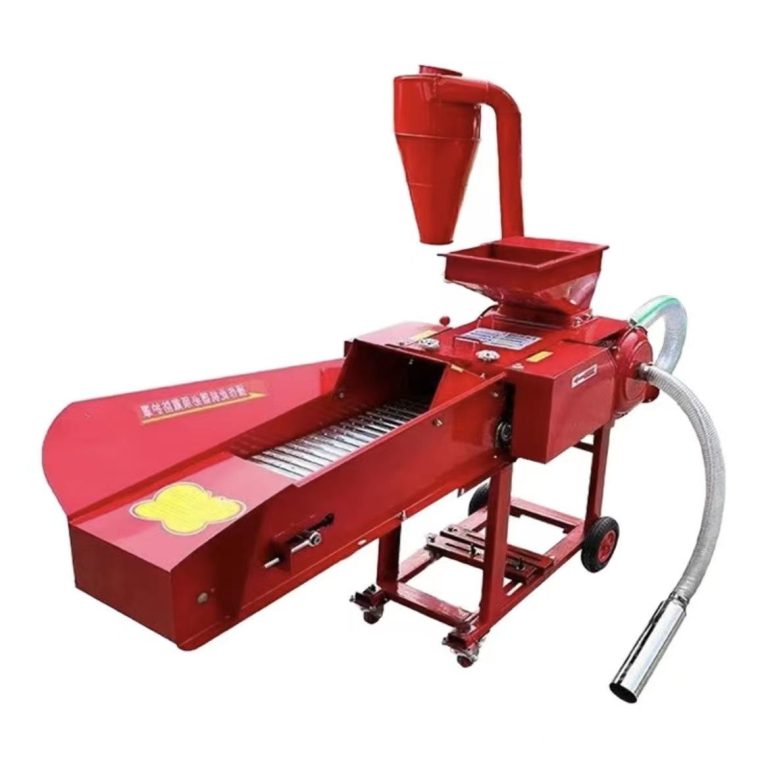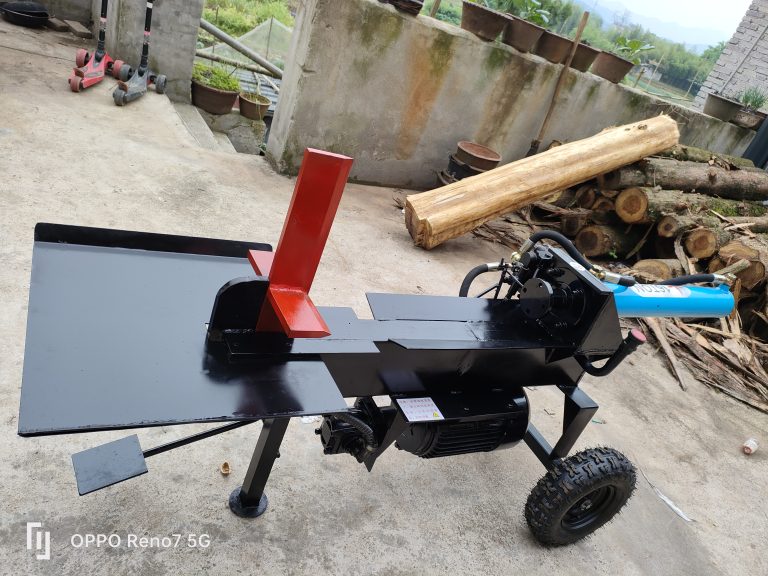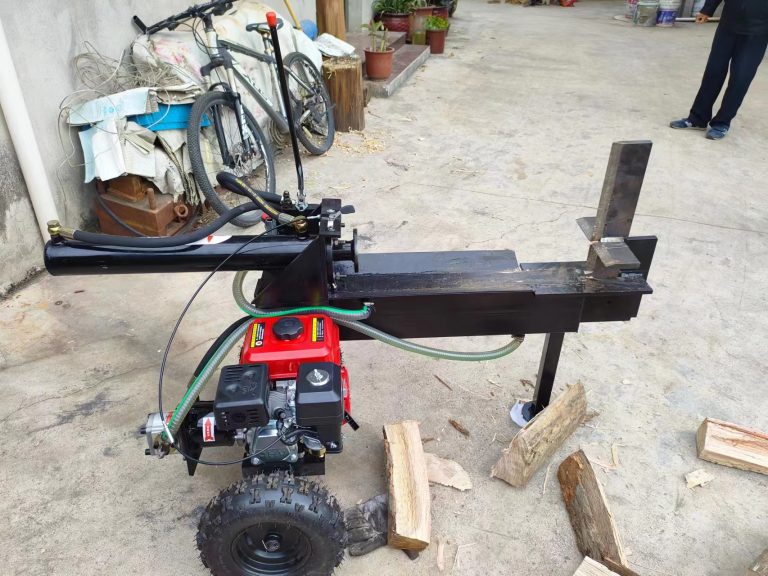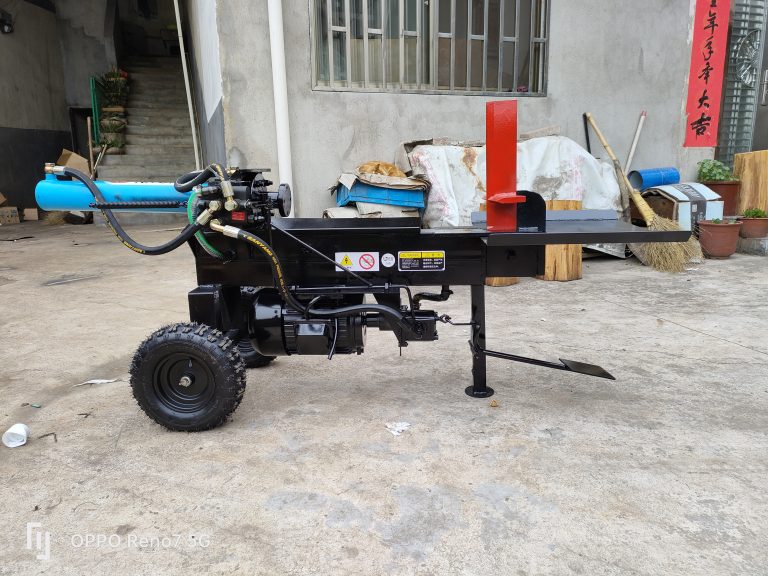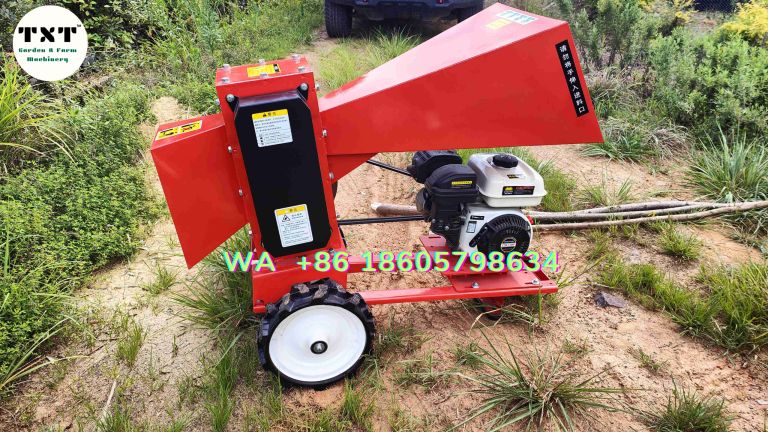Table of Contents
Benefits of Regular Maintenance for Chopping Machines
Chopping machines are essential tools in many industries, from food processing to woodworking. These machines are designed to quickly and efficiently chop, slice, and dice various materials, making them indispensable for businesses that rely on high-volume production. However, like any piece of equipment, chopping machines require regular maintenance to ensure they continue to operate at peak performance.
| Applicable Industries | Farms, Home Use, Retail, Construction works , Forestry and Garden |
| Type | Wood splitter |
| Power Type | Gasoline/Petrol/Diesel/E-power |
| Splitting Force | 2tons/5tons/10tons/16tons/22tons |
| Maximumn trunk length: | 60cm |
| Maximmn trunk Dia: | 35-55cm |
| Max. Output: | 7.5HP/15HP |
| Applicable Industries | Farms |
| Type | Wood splitter |
| Power Type | Gasoline |
| Splitting Force | 2tons |
| Maximumn trunk length: | 60cm |
| Maximmn trunk Dia: | 35-55cm |
| Max. Output: | 7.5HP/15HP |
One of the primary benefits of regular maintenance for chopping machines is increased efficiency. Over time, the blades and other components of a chopping machine can become dull or worn, leading to decreased cutting performance. By regularly sharpening blades, lubricating moving parts, and checking for any signs of wear or damage, operators can ensure that their chopping machine continues to operate at maximum efficiency.
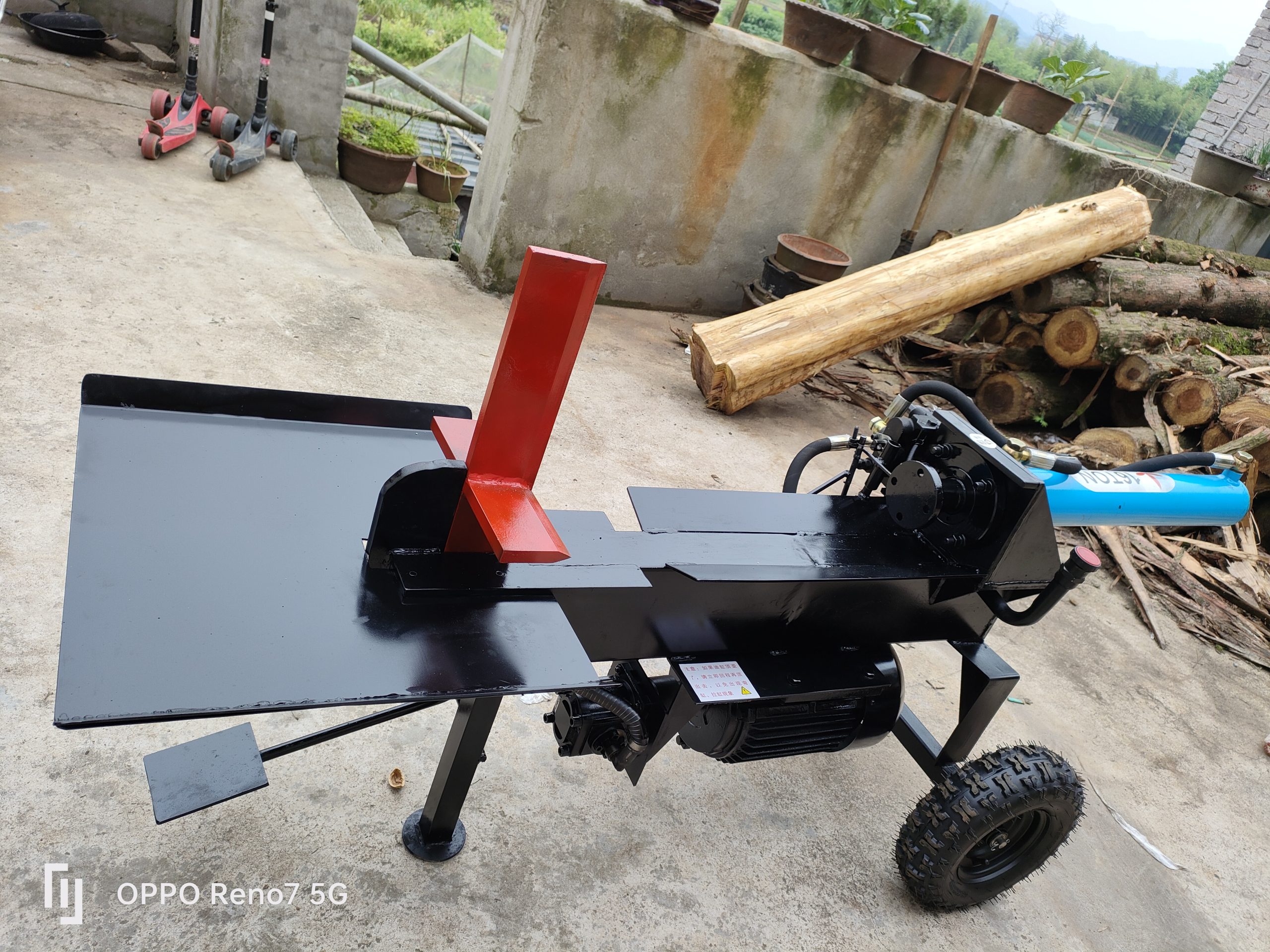
In addition to improving efficiency and extending the lifespan of a chopping machine, regular maintenance can also help to ensure the safety of operators. A well-maintained machine is less likely to malfunction or break down unexpectedly, reducing the risk of accidents or injuries in the workplace. By following a regular maintenance schedule and conducting thorough inspections, operators can identify and address any potential safety hazards before they become a serious problem.
Another benefit of regular maintenance for chopping machines is improved product quality. A machine that is properly maintained will produce more consistent and uniform cuts, leading to a higher-quality end product. This is especially important for businesses in the food processing industry, where consistency and precision are key to producing safe and appealing products for consumers.
Finally, regular maintenance can also help to reduce downtime and increase productivity. By addressing any issues proactively, operators can prevent unexpected breakdowns and minimize the amount of time the machine is out of commission for repairs. This can help businesses meet production deadlines and maintain a steady workflow, ultimately leading to increased profitability.
In conclusion, regular maintenance is essential for ensuring the continued performance and longevity of chopping machines. By following a regular maintenance schedule, operators can improve efficiency, extend the lifespan of the machine, ensure the safety of operators, improve product quality, and reduce downtime. Investing time and resources in maintaining chopping machines can ultimately lead to cost savings and increased productivity for businesses that rely on these essential tools.
Common Maintenance Tasks for Chopping Machines
Chopping machines are essential tools in many industries, from food processing to woodworking. These machines are designed to quickly and efficiently chop, slice, and dice various materials, making them indispensable for businesses that rely on high-volume production. However, like any piece of equipment, chopping machines require regular maintenance to ensure they continue to operate at peak performance.
One of the most important maintenance tasks for chopping machines is cleaning. Over time, debris and residue can build up on the blades and other components of the machine, leading to decreased efficiency and potential safety hazards. Regular cleaning can help prevent these issues and extend the life of the machine. It is recommended to clean the machine after each use, using a mild detergent and warm water to remove any buildup. Additionally, it is important to regularly inspect the machine for any signs of wear or damage, such as loose or missing parts, and address these issues promptly to prevent further damage.
In addition to cleaning, another important maintenance task for chopping machines is lubrication. Proper lubrication helps reduce friction between moving parts, preventing wear and extending the life of the machine. It is recommended to lubricate the machine according to the manufacturer’s guidelines, using a high-quality lubricant that is compatible with the machine’s components. Over-lubrication can be just as harmful as under-lubrication, so it is important to follow the manufacturer’s recommendations carefully.
Regular inspection is also crucial for maintaining chopping machines. By regularly inspecting the machine for signs of wear or damage, such as loose or missing parts, operators can identify potential issues before they escalate into more serious problems. It is recommended to inspect the machine before each use, checking for any abnormalities in the operation or appearance of the machine. If any issues are identified, they should be addressed promptly to prevent further damage and ensure the machine continues to operate safely and efficiently.
Another important maintenance task for chopping machines is blade sharpening. Over time, blades can become dull from regular use, leading to decreased cutting efficiency and potentially unsafe operating conditions. It is recommended to sharpen the blades regularly, using a sharpening stone or other appropriate tool. It is important to follow the manufacturer’s guidelines for blade sharpening, as improper sharpening can damage the blades and compromise the performance of the machine.
In conclusion, chopping machines require regular maintenance to ensure they continue to operate at peak performance. Cleaning, lubrication, inspection, and blade sharpening are all important maintenance tasks that can help extend the life of the machine and prevent potential safety hazards. By following the manufacturer’s guidelines and addressing any issues promptly, operators can keep their chopping machines in top condition and maximize their efficiency and longevity.

